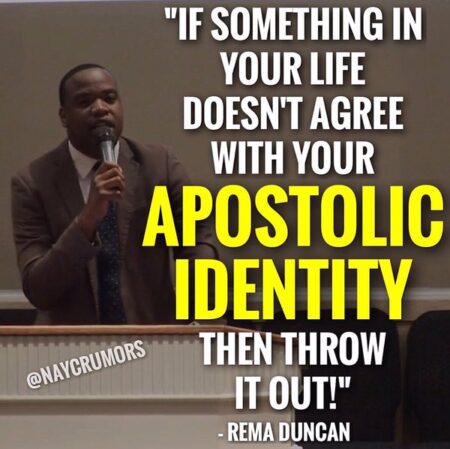What can we ever do that will be considered good enough for an almighty, righteous, holy God? We’re human, He’s God. We’re born in sin and shapen in iniquity, He’s the creator of all things. Will skirts or long hair or a lack of jewelry ever be sufficient?
I know the standard answer in churches I’ve been to has been that we do those things because we love Him, not to be saved. Yet if a person doesn’t do those things, are they considered saved? The answer to that is generally “by their fruits you shall know them.” What fruits? The Bible nowhere mentions clothes or hair as fruits. The fruit of the spirit is love, joy, peace, long-suffering, goodness, kindness, gentleness, meekness. And thorns are definitely not cut hair, pants and makeup. Attitudes can get prickly, but the way we dress doesn’t hurt others any time we get near them. If your imagination immediately jumped to a hooker or stripper and the way she dresses, and you thought, yes, the way they dress can hurt us, I’ll remind you that the way that person dresses doesn’t hurt you unless you have a fault that keeps you from fleeing that situation or leads you to lust. But lying, backbiting and slander can hurt a person even if they haven’t done anything wrong.
Thinking about all of this last night I realized that when we do certain things to try to be saved or look down on others as unsaved if they don’t do them, we place ourselves in a very dangerous situation: we lift ourselves up on an equal with God. God is holy and righteous. Our righteousness, the very best we can do, is as filthy rags to Him. No matter how “good” we try to be, we still fall short, because He knows our hearts. He knows the greed or pride that motivates, even if it’s just a tiny bit of our motivation.
That doesn’t mean that we should stop doing the right things or stop being good. But being good is not a list of rules and dress codes, it’s a mindset. It’s a matter of a right heart and a clean conscience. And it doesn’t involve judging others for the ways we think they might not measure up to us.
What is good? Jesus himself asked a man why he called him good, since there’s none good but God. And what should we do, if Christianity isn’t about being good? Well, when we live in Jesus, and He lives in us, won’t His goodness shine through us? But what is His goodness? It’s not dress standards, it’s love. Compassion, mercy, gentleness… grace. Those are the things we should focus on, not externals. Anyone can dress a certain way, but true fruit- love, joy, peace, patience, goodness, kindness, gentleness, meekness- who can imitate those for any length of time? Who can even live like that most of the time?
If those Christian attitudes are more difficult to display than long sleeves, shouldn’t they be the focus? And if we know we can’t produce those fruits in our lives consistently on our own, then can we take pride in living that way? Absolutely not. Because living with love, joy, peace, patience… having those in our lives takes something more than a credit card and the right clothes in the closet. It takes Christ.












